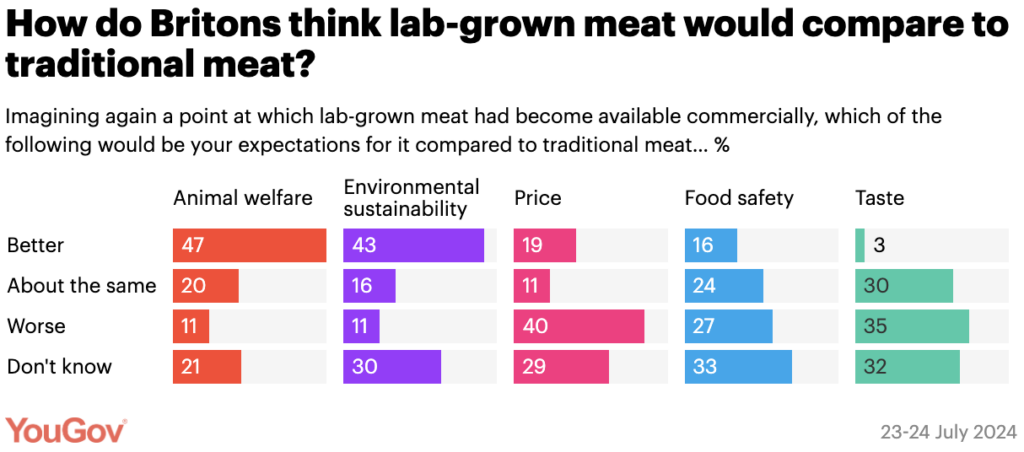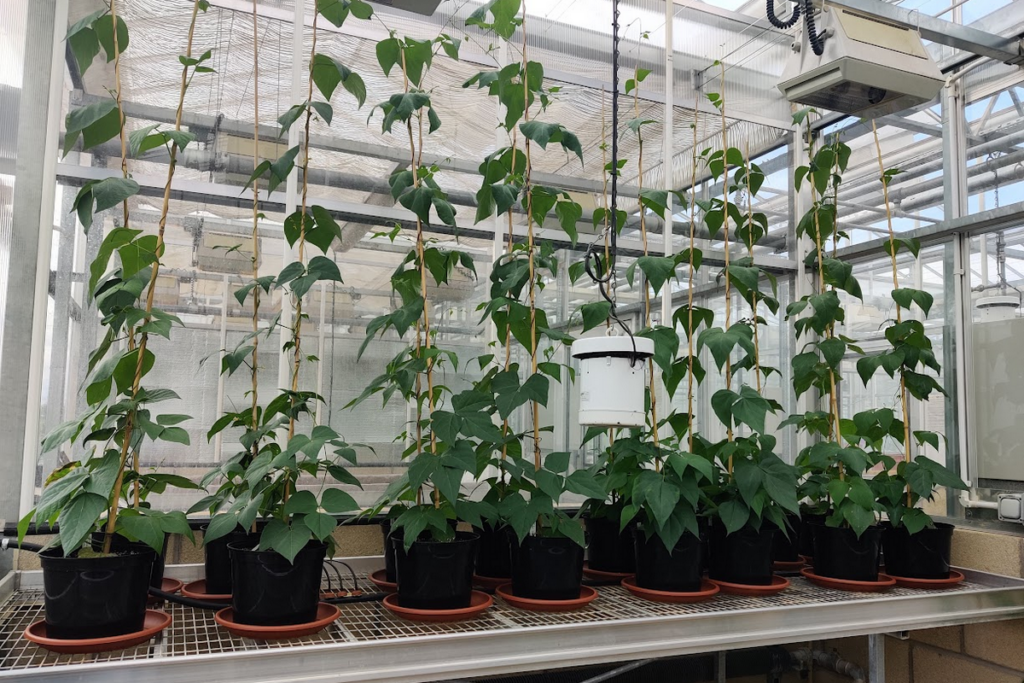UK Government Pumps £15M into National Centre to Commercialise Alternative Proteins
8 Mins Read
The UK is opening a £38M National Alternative Protein Innovation Centre to bring new planet-friendly foods to market, with a £15M investment from the government.
The University of Leeds is hosting a new hub dedicated to developing and commercialising climate-friendly alternatives to animal proteins, and getting more people to eat them.
The National Alternative Protein Innovation Centre (NAPIC) has been established through a £38M investment from public and private sector players, including over 100 stakeholders and businesses both domestically and abroad.
Of this, £15M comes from the Biotechnology and Biological Sciences Research Council (BBSRC) and Innovate UK – two of the government’s largest financing bodies – as the UK look to accelerate its net-zero emissions strategy.
The future food hub will be co-hosted by the James Hutton Institute, the University of Sheffield, and Imperial College London – which is also the site of one of Bezos Earth Fund‘s Centers for Sustainable Protein – with a team of 30 interdisciplinary researchers and 120 international partners. These include farmers, small and large businesses, regulators, and councils).
Focusing on plant-based, cultivated and fermentation-derived products and ingredients from innovation to commercialisation – as well as developing more sustainable animal feed and aquaculture – NAPIC will offer technical, entrepreneurial, regulatory and policy training, while promoting knowledge exchange via its international network of partners, which includes the United Nations.

“This hugely welcome investment will provide a catalyst driving forward the pace of innovation by bringing together a wide variety of UK researchers to solve the many challenges involved in commercialising alternative proteins,” Dr Stella Child research and grants manager at the Good Food Institute (GFI) Europe, told Green Queen.
According to GFI Europe’s estimates, the £15M financing by the BBSRC and Innovate UK has brought the government’s total investment in alternative proteins to over £91M. The capital will support NAPIC for five years, as its members work to produce a roadmap for the development of a National Protein Strategy in the UK.
“The new National Alternative Protein Innovation Centre will advance research and innovation in alternative proteins, strengthening the UK’s leadership in this critical sector and fostering international collaboration to ensure a more sustainable and secure food future for all,” Dr Stella Peace, executive director for healthy living and agriculture at Innovate UK, said in a statement.
The four pillars of the UK’s new alternative protein centre

The members of NAPIC will work closely with businesses, academia, regulators, and investors on four interdisciplinary knowledge pillars. The University of Leeds will lead the Perform pillar, ensuring that alternative proteins meet consumers’ taste, texture and nutrition expectations.
The Produce pillar – headed by the James Hutton Institute – will help partners develop ingredients and products with optimum functional, sensories and nutritional qualities, and address concerns about ultra-processed foods and a just transition for farmers.
Then there’s the Process pillar, with Imperial College leading this effort. It involves a specific focus on scaling up cultivated meat and precision fermentation via AI-guided models to help commercialise these foods.
Finally, the University of Sheffield will spearhead the People pillar, which aims to focus on delivering a fair protein transition for consumers and farmers through a focus on affordability, accessibility and acceptability. This involves providing new training and business opportunities for farmers, as well as futureproofing the UK’s protein supply against a reliance on imports.
The UK currently imports over £15B worth of protein products (including meat, dairy, eggs and seafood), plus £3B worth of animal feed, according to Dr Rob Hancock, deputy director of the Advanced Plant Growth Centre (APGC) at the James Hutton Institute.

The food system accounts for a third of global greenhouse gas emissions, with meat and dairy alone making up 57% of this share (twice as much as plant-based). In contrast, a University of Oxford study found that vegan diets can reduce emissions, water pollution and land use by 75% compared to a meat-rich diet.
“Reducing these emissions will be difficult, especially given an increasing global population and the impacts of climate change,” said Professor Derek Stewart, director of the APGC, who is leading the Produce pillar. “We need to find more sustainable sources of protein and thankfully there is a huge biodiversity in non-animal sources of protein, and we’ve barely scratched the surface of this.”
Transitioning to healthy, sustainable sources of protein is a pressing global challenge,” added Professor Karen Polizzi from Imperial College’s Department of Chemical Engineering, who is spearheading the Process pillar. “NAPIC will help facilitate this transition by supporting researchers and industry in all parts of the process from product design through to consumer acceptance.”
Why the consumer focus is vital

Polizzi is the vice-director of the Bezos Center for Sustainable Protein too, but while this hub has a research focus surrounding engineering biology and AI to speed up the development of alternative proteins, NAPIC will home in on making these foods mainstream in the UK.
Consumer acceptance is one of the major barriers hindering these foods’ progress. Professor Louise Dye, co-director of the Institute of Sustainable Food at the University of Sheffield, told PA Media that only around 9% of supermarket protein sales come from alternative proteins.
“Population-level access to – and acceptance of – alternative proteins is currently hindered by a highly complex marketplace, concerns about taste, nutritional equivalence and cost, as well as health and safety concerns, and the fear of diminished livelihoods for farmers,” added Professor Anwesha Sarkar, project leader for NAPIC, and research and innovation director at the University of Leeds’ School of Food Science and Nutrition.
And while there are encouraging signs, a lot more needs to be done. For example, one survey suggested that 2.5 million Brits were vegan in 2023, a 78% rise from the year before – and another 3.1 million were vegetarian. Meanwhile, meat and dairy consumption fell to their lowest levels last year in nearly half a century (when records began) – but so did fruit and vegetable intake.

When it comes to cultivated meat, more Brits would feed these proteins to their pets (47%) than themselves (33%), according to a 2022 study. This was echoed by a more recent poll too, where only 26% of consumers expressed a willingness to eat cultivated meat – with taste and price key concerns.
Even with plant-based meat, a category of products that have been on the market for a while, taste and affordability are the biggest complaints in the UK, while health is the most attractive benefit of these analogues.
This illustrates the need to drive consumer support for these proteins by meeting them where they are, as well as helping farmers transition away from animal proteins without hurting their incomes and lives. There is some potential here, with research revealing that British farmers recognise the benefits of cultivated meat.
“With consumers and agriculture at the heart of a transition towards alternative proteins, it’s hugely important that the centre focuses on ensuring these foods meet people’s expectations around taste, price and nutrition, as well as enabling British farmers to benefit from new opportunities in this growing sector,” said Linus Pardoe, UK policy manager at GFI Europe.
UK government urged to ramp up investment in alternative protein

NAPIC is the latest in a string of examples showcasing the UK’s commitment to alternative proteins. In the last 18 months, the Engineering and Physical Sciences Research Council has injected £12M in the Cellular Agriculture Manufacturing Hub at the University of Bath, while UK Research and Innovation (UKRI) supported Imperial College’s Microbial Food Hub with up to £12M in financing.
“The launch of the National Alternative Protein Innovation Centre exemplifies our commitment to spearheading innovation in the alternative proteins sector,” said Professor Guy Poppy, food champion at UKRI and deputy executive chair of the BBSRC (which is part of UKRI).
“By harnessing the strengths of our world-class scientific community and robust industrial partnerships, this initiative addresses vital sustainability challenges and forges essential links between research and commercial application,” he added. “Academic and industry collaboration is key to transforming these pioneering ideas into practical, scalable solutions.”
Along similar lines, NAPIC head Sarkar said: “NAPIC is a truly pan-UK centre with global reach and our mission is to be an ‘innovation enabler’ for rapidly evolving alternative protein industries, delivering a universally healthy, acceptable, accessible, eco-friendly food system by harnessing the UK’s world-class science.”
Highlighting the potential of the hub, the James Hutton Institute’s Dr Hancock told PA Media that around 75% of human food comes from just 12 plant species, but “there are about 14,000 plant species which are edible and available to be exploited”.

GFI Europe has previously called on the UK to provide £390M in investment to the alternative protein sector between 2025 and 2030, if it is to keep pace with the rest of the world. “Estimates indicate that, with regulatory reforms and sufficient public investment, the UK’s alternative protein industry could add £6.8B each year to the country’s economy and create 25,000 jobs by 2035,” noted Dr Child, its research and grants manager.
Now, the think tank is urging the UK to go even further. “In order to achieve this success and ensure the UK remains competitive internationally, the new government needs to build on the country’s growing scientific expertise and invest £100M a year in R&D and creating the infrastructure British alternative protein companies need,” she added.
But with investments growing in the last couple of years, and the UK recently becoming Europe’s first country to approve cultivated meat for sale, the establishment of NAPIC is a step in the right direction.
“Today’s announcement provides yet more evidence that the UK government increasingly recognises the importance of alternative protein research and development to boost food security, reduce the climate impact of our food system and create green futureproof jobs,” said Dr Child.



